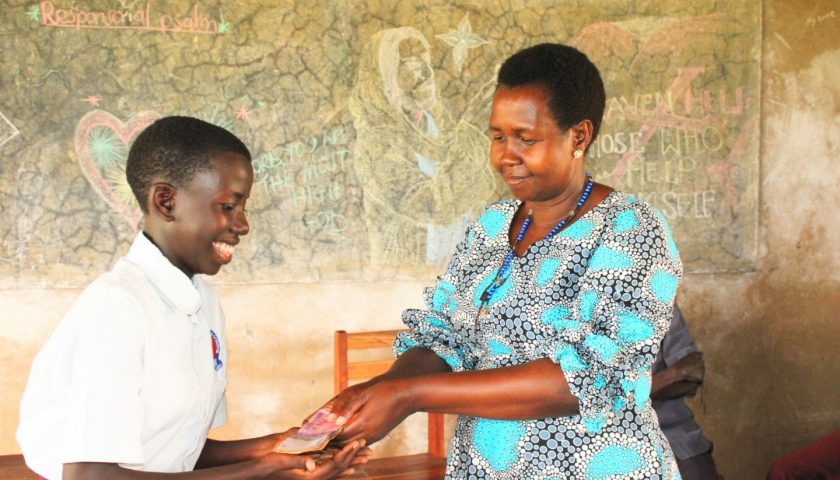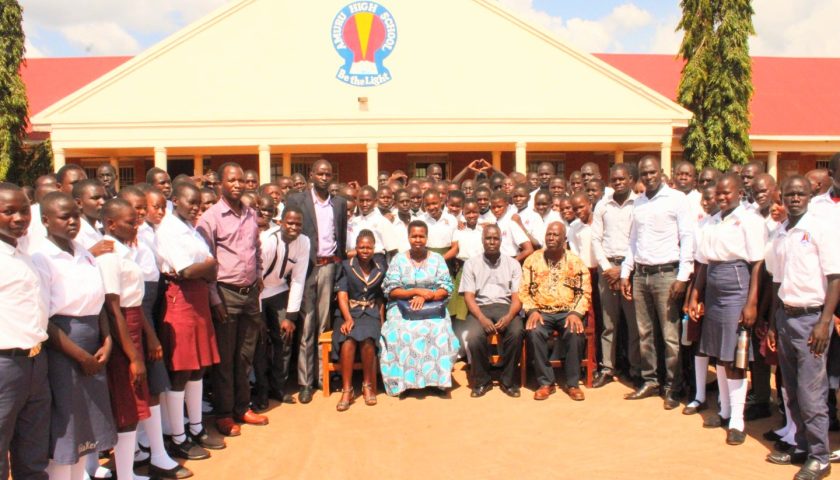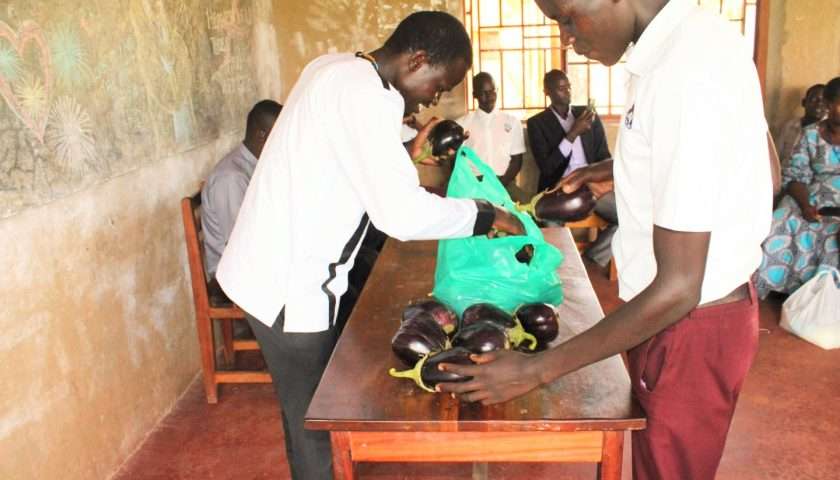AMURU District: Senet Atim, a senior two student at Amuru High School is a living testimony of how students are heavily relying on small scale horticulture farming including vegetables and fruits to raise money for fees and scholastic materials.
Atim says she ventured into growing onions and harvested up to two bags which was roughly eight kilograms. She says she generated sh200,000 from the onions, selling each kilo at sh20,000.
Her case is not spared. Kenneth Omara, a S.1 student also ventured into growing tomatoes and harvested up to seven basins.
He says he generated sh80,000 after sales in a quantity of five tomatoes per sh500.
“I harvested seven buckets of tomatoes and I sold each tomato at sh100 which earned me up to sh80,000 and I have saved sh40,000 already,” Omara said.

Kevin Langec, a S.3 student is another. He said he cultivated cabbages at the beginning of the term and he harvested at least 10 kilograms (roughly about two sacks).
Langec explained that he sold his cabbages at sh5,000 for each kilogram which earned him sh50,000 that he used to buy necessities including books, a pair of socks, soap, and cosmetics.
Langec added that he was encouraged by one of his teachers who also helped him in securing the cabbage seeds that they planted in the nursery bed before transplanting them.
Like them, many other students say this is not only orchestrated by the financial constraints on their parents side, but also to help relieve them (their parents) from the burden of raising money for fees and scholastic materials.
The students who mostly engage in small scale vegetable and fruit growing including onions, cabbage, tomatoes, and eggplants among others say this one way to help supplement the huge costs involved in acquiring education in the district.
Lucy Akello, the Amuru District Woman Member of Parliament (MP), who visited the school applauded the students for adopting such productive ventures.
“I had come purposely to buy the vegetables the students were selling. The money I am giving them in exchange shall be the purpose of extending the capacity to have access to the items that they would delay to get without extended help,” Akello said.
She remarked although it is the responsibility of parents and caretakers to provide, it is not in order for students to leave all that burden to them alone more so when they have the chance to engage in such productive activities.
Ricard Olweny, the head of Agriculture and Directory of Industrial Training Department in the school, said they needed to help the students become productive while still at school.
Isaac Tokwiny, the Director of the School, said that it is very encouraging to see students embrace new means of solving their own problems.

Tokwiny said that the youth need critical thinking in problem solving – something that the young students have demonstrated.
He said that he is delighted by the fact that the students produced over 3,000 kilograms of vegetables that earned them close to 13 million combined together.
School SACCO Saving
The students are also involved in a savings group-where they put some money aside for it to grow.
Richard Opiyo, the Head of Agriculture, Entrepreneurship and Directorate of Industrial Training (DIT) at the school, said that they also thought it wise to instill in the students entrepreneurial skills alongside the agricultural business practices.
Opiyo explained that the savings group is geared towards registering these entrepreneurial practicing students to DIT in fulfilment of government’s dream of skilling students through the new school curriculum.
He added that hopefully, the students are very likely to be enrolled and registered into DIT in Kampala – where they will be in position to sit examinations to test their vocational and technical skills.
Amuru High School is a Private Secondary school that started in 2016 with the dream of bringing education closure to the locals who constantly trek long distances through the rough bushes to reach school.

